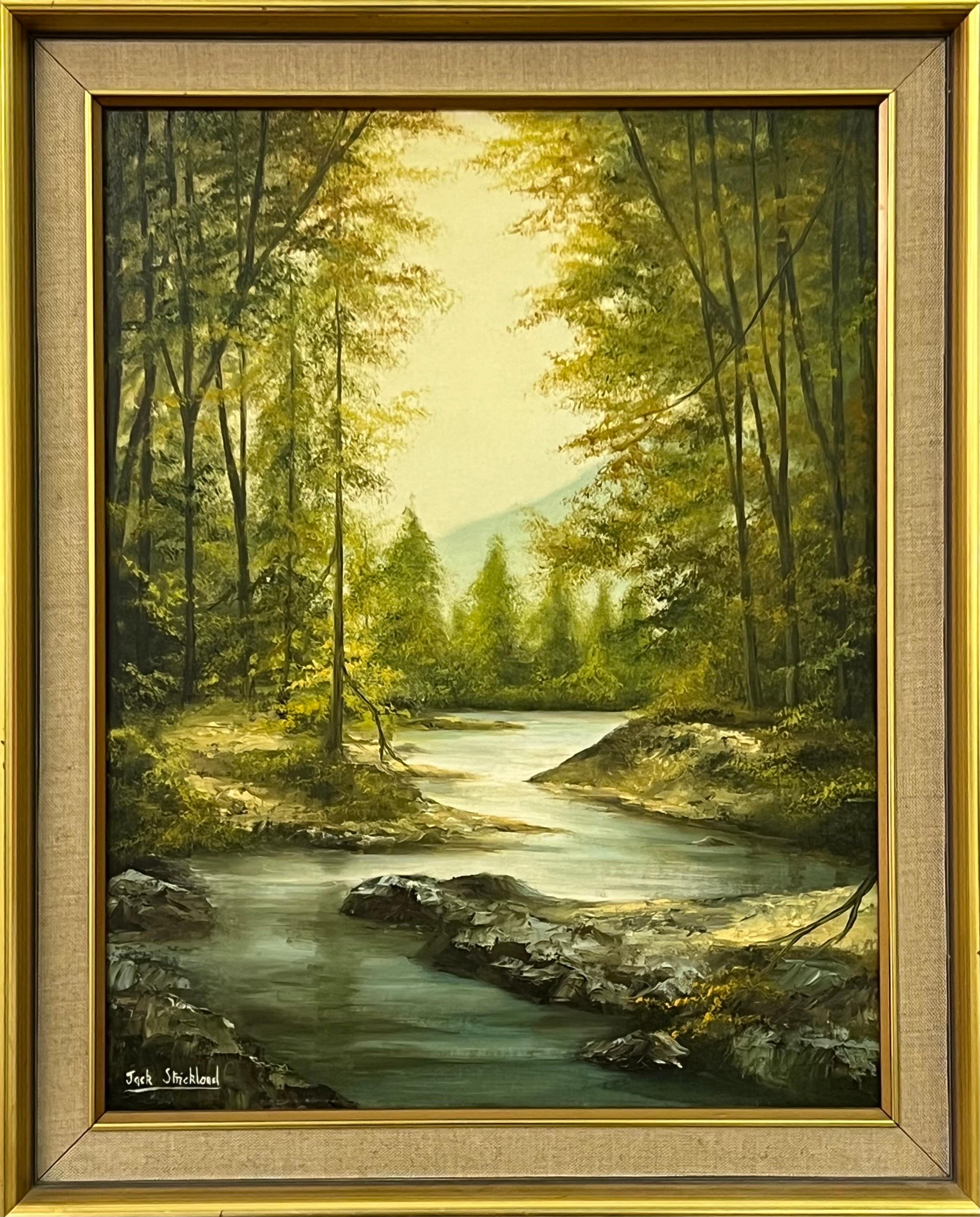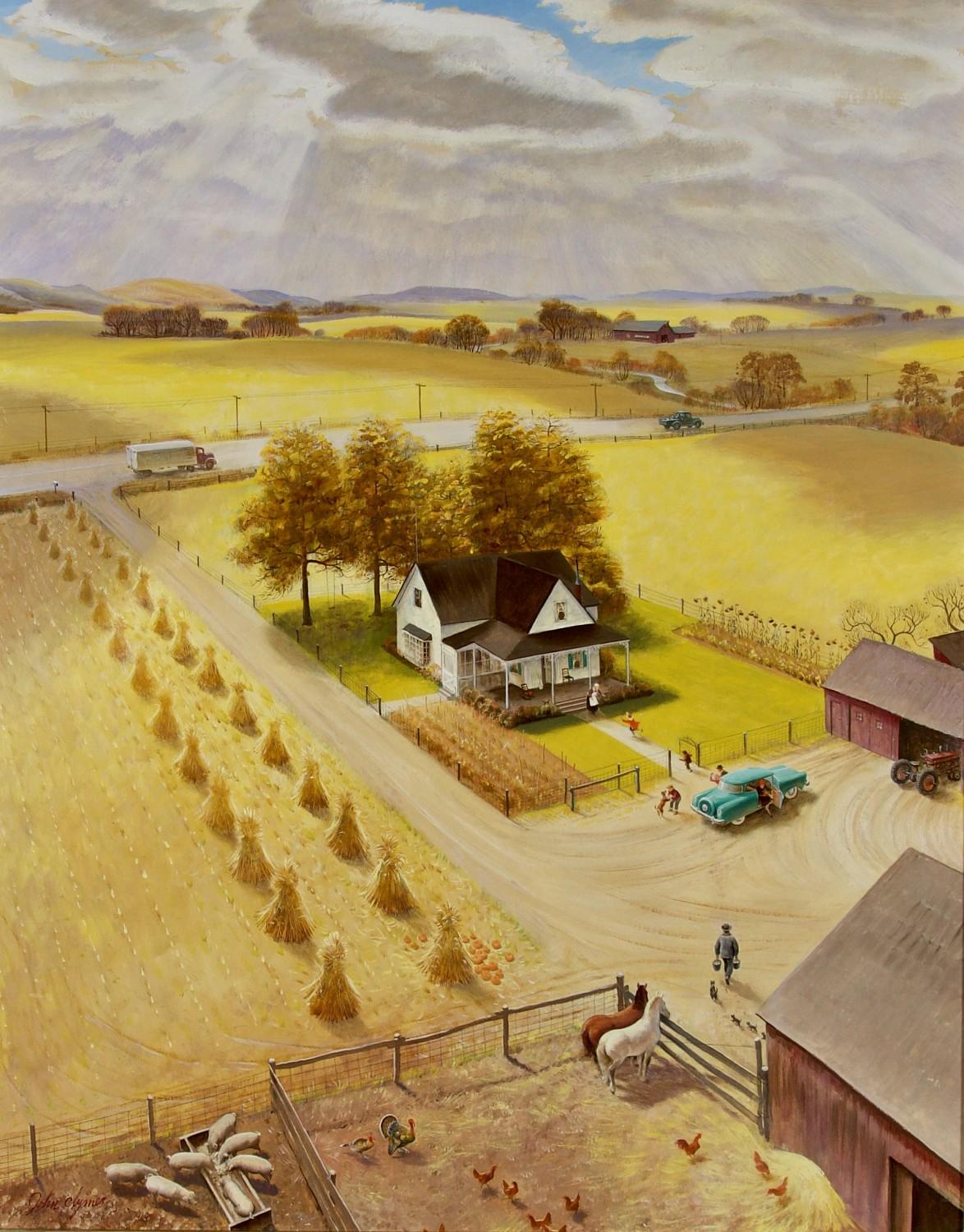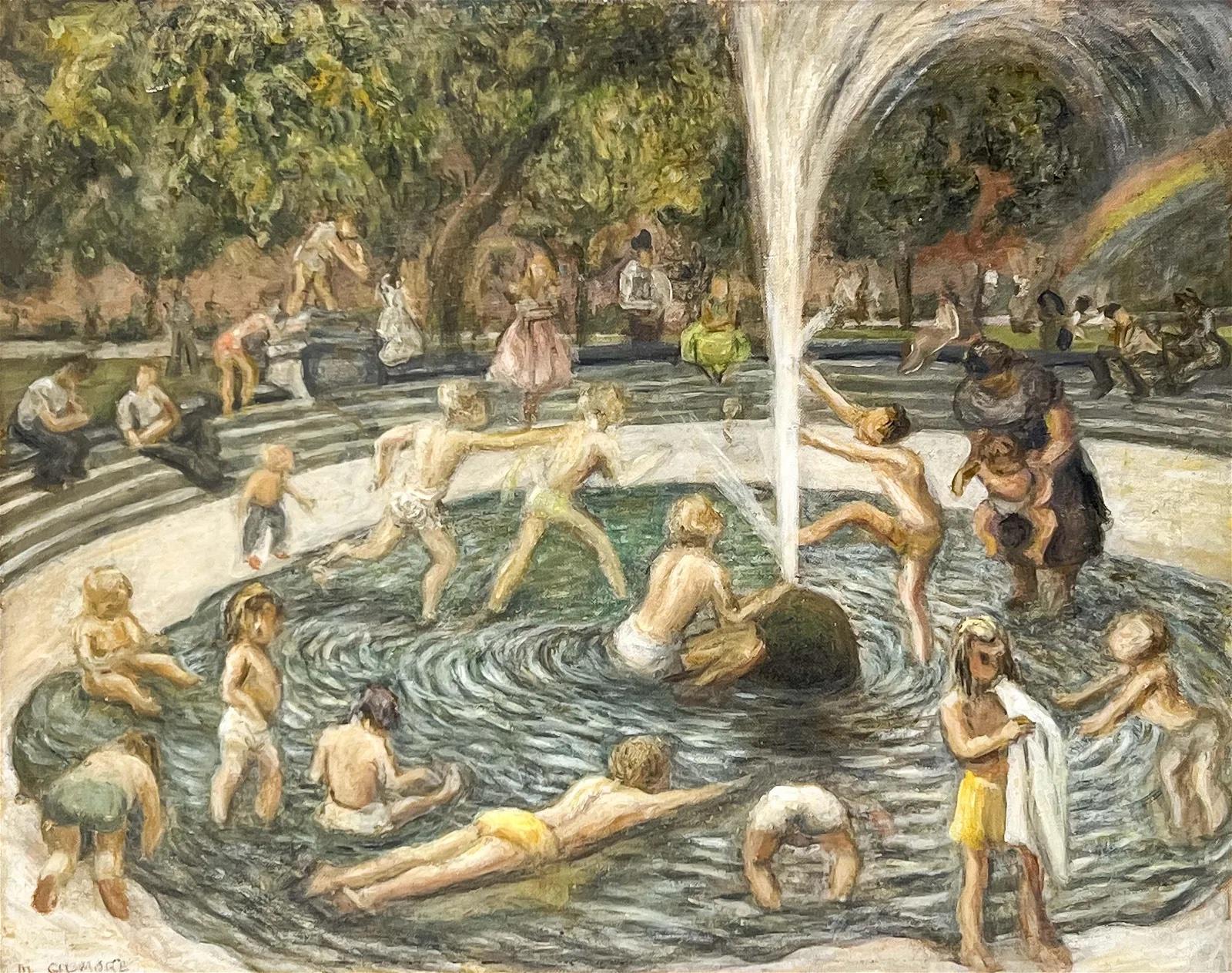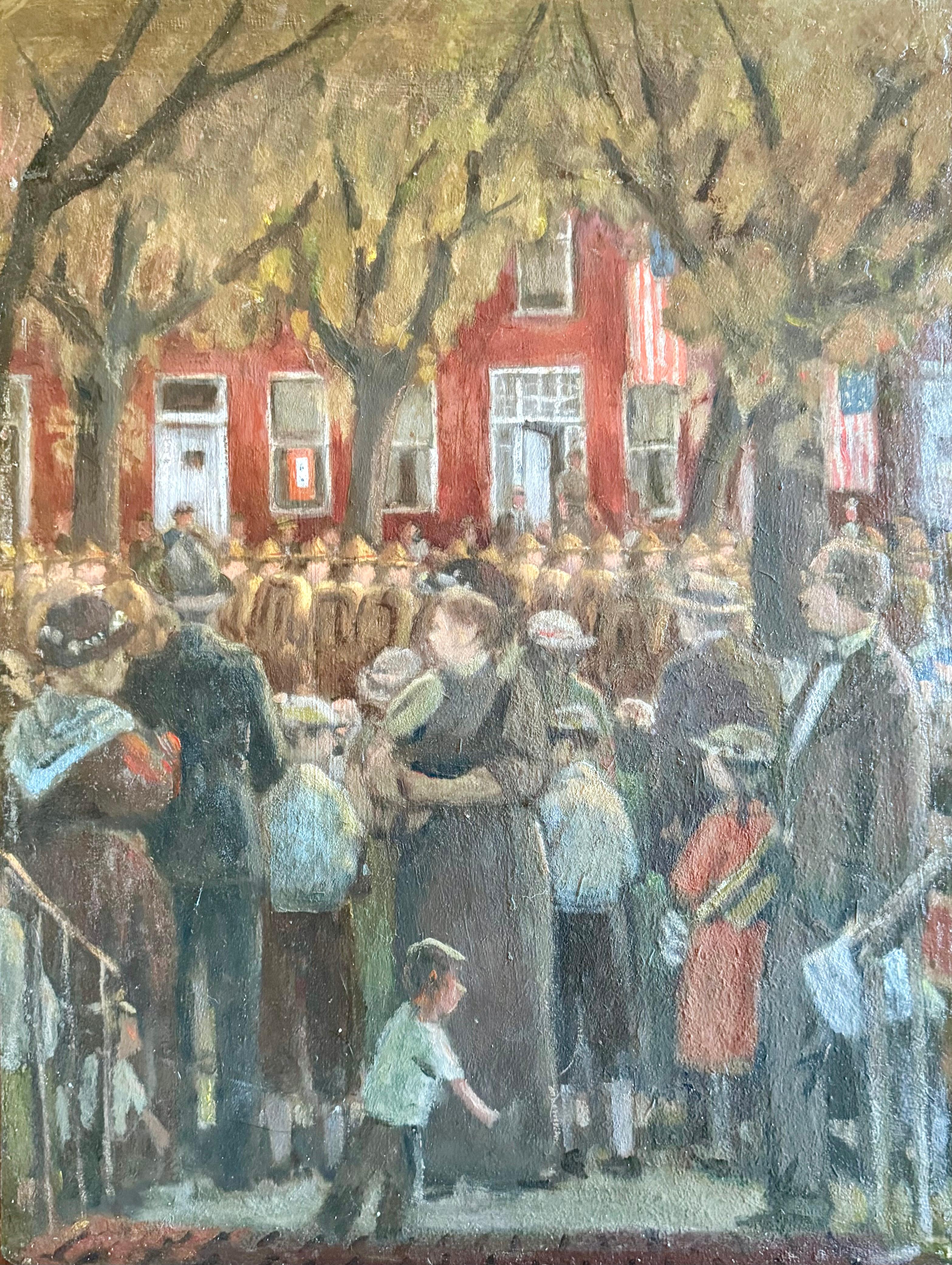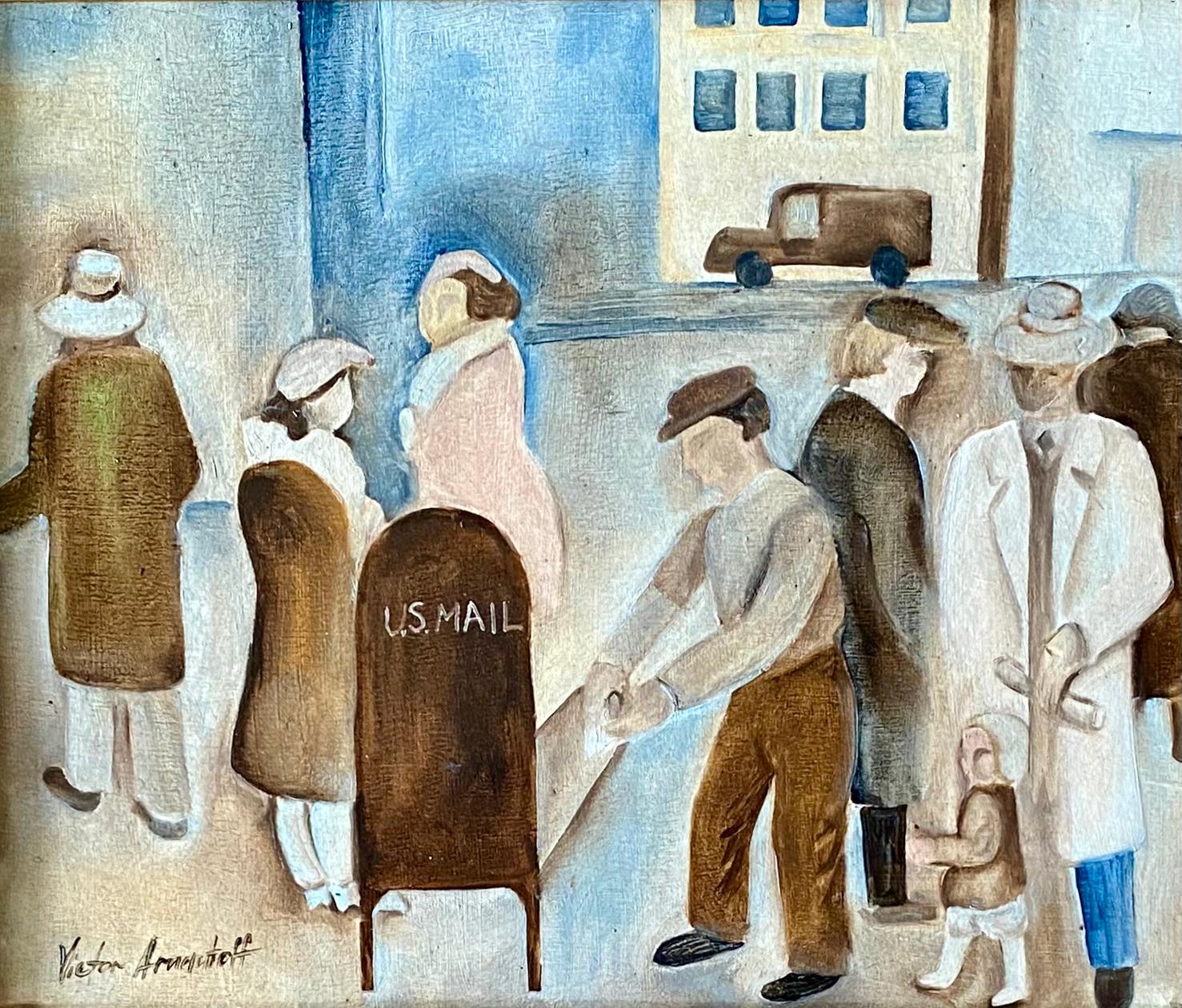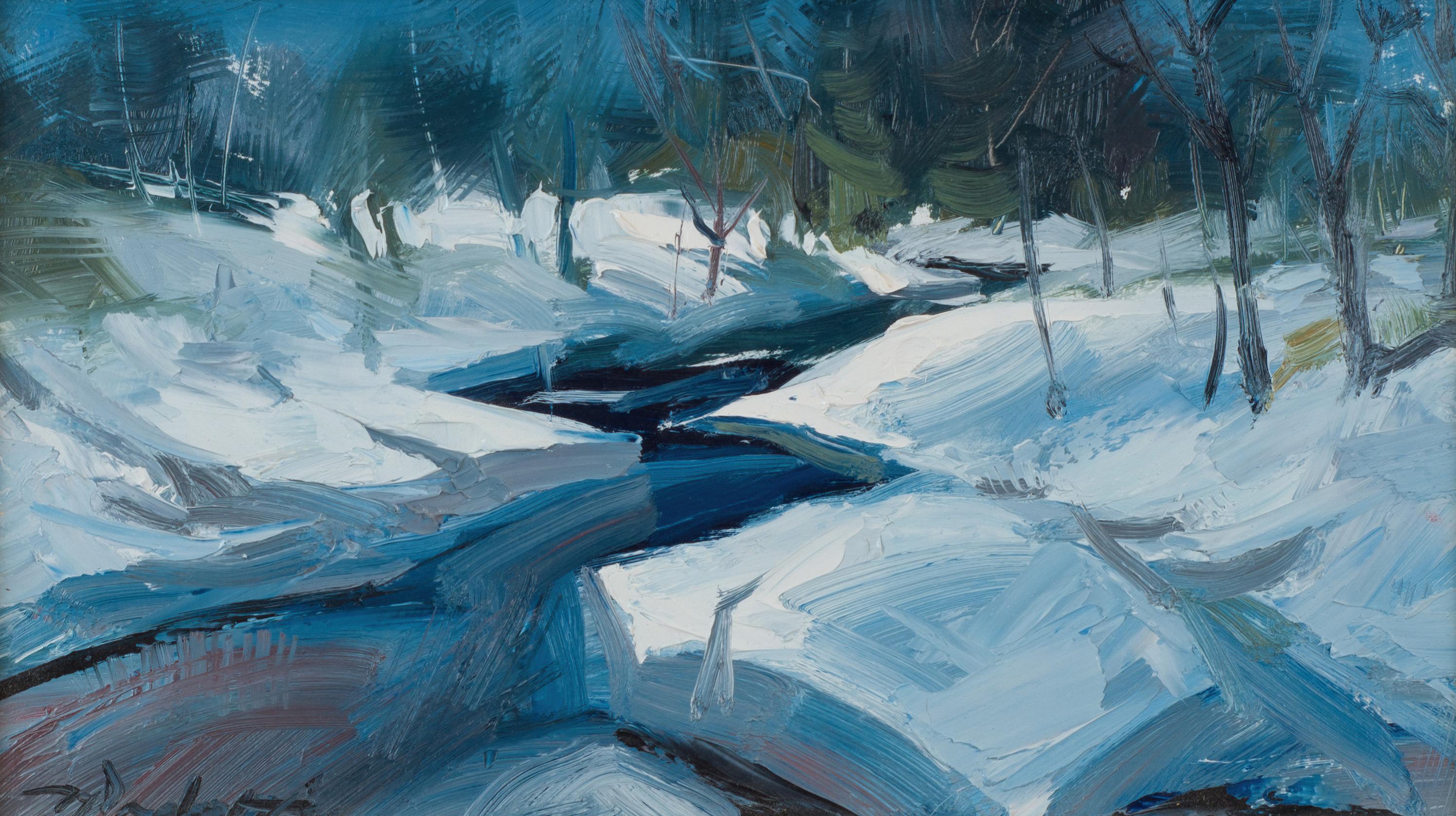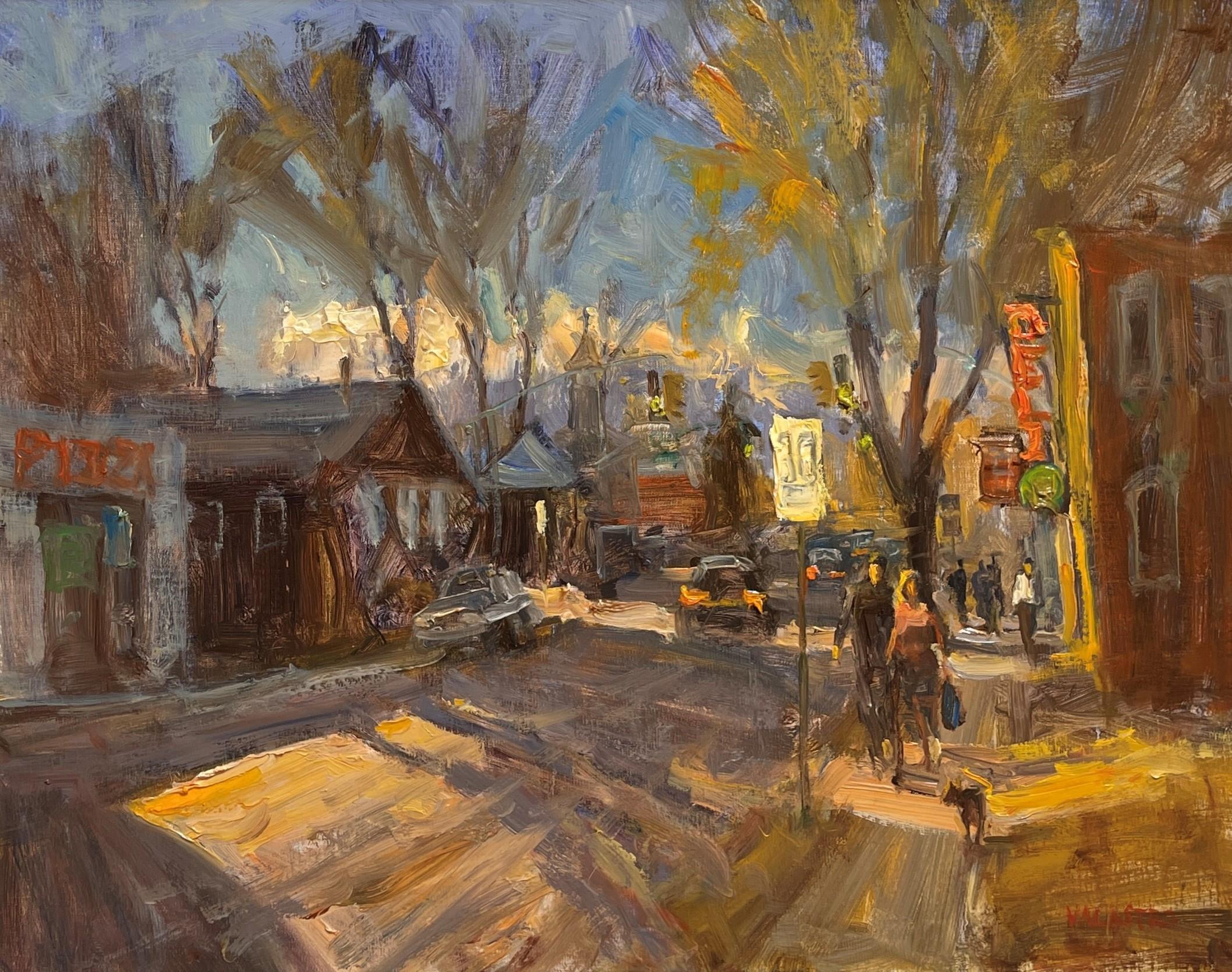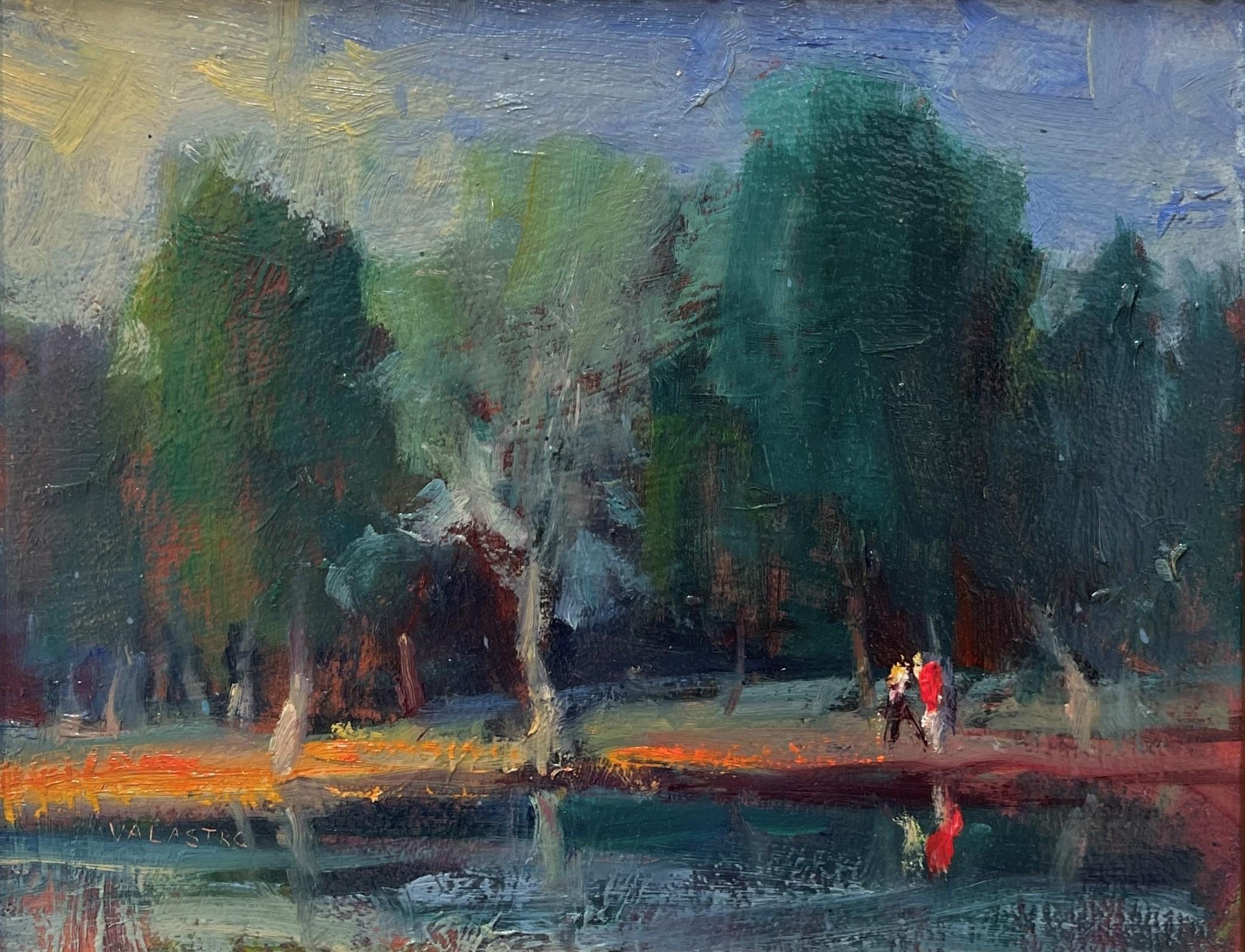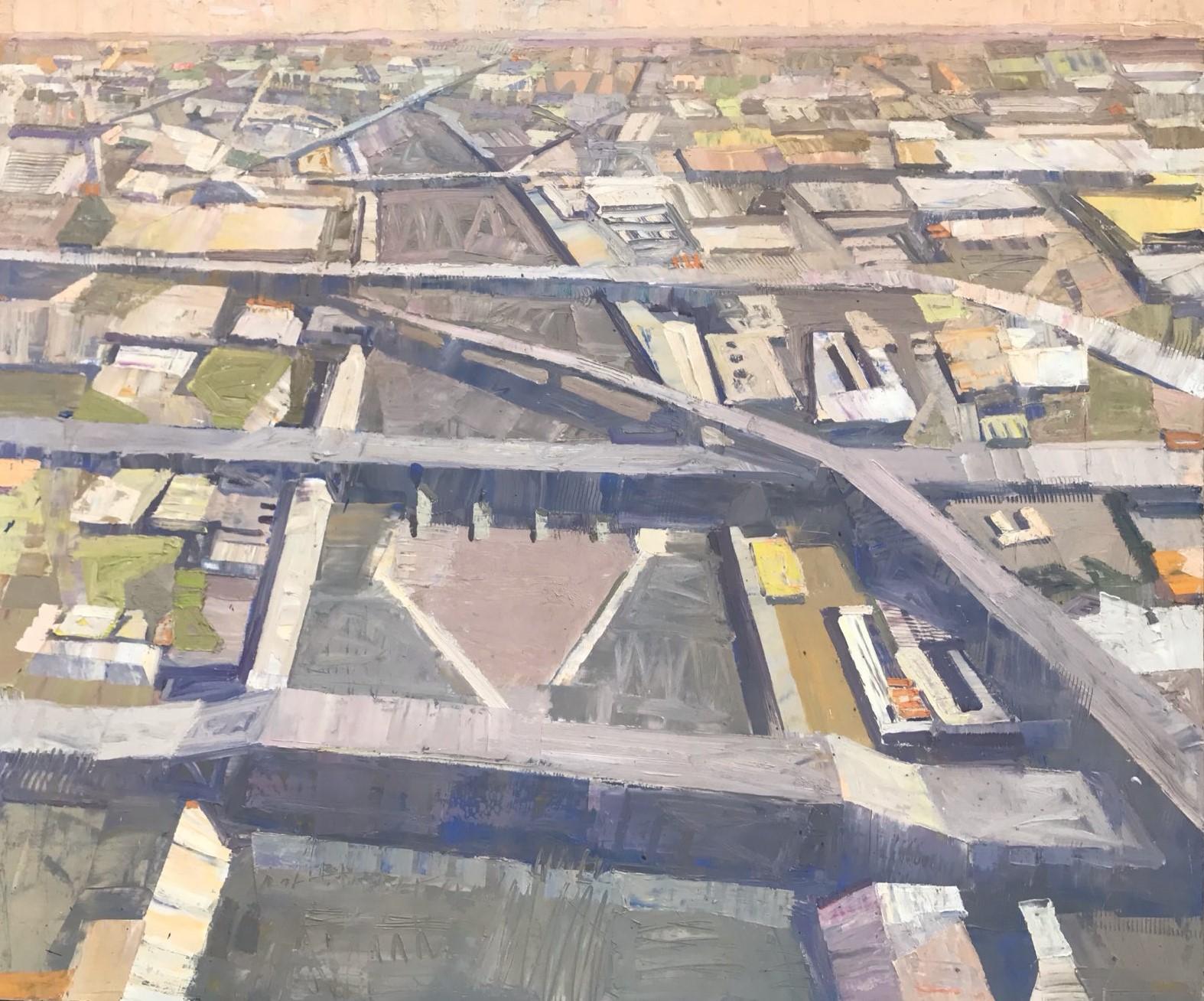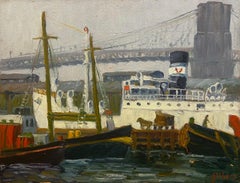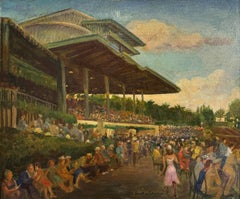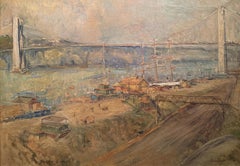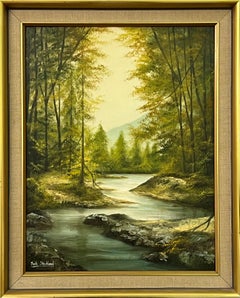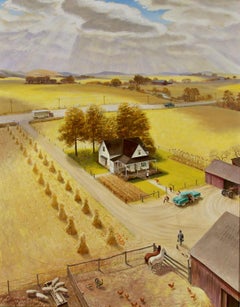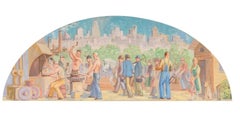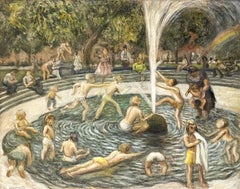"Raising Roof, " Marianne Appel, Midwest Americana, Beer Illustration, WW2
Want more images or videos?
Request additional images or videos from the seller
1 of 13
Marianne Appel"Raising Roof, " Marianne Appel, Midwest Americana, Beer Illustration, WW21945
1945
$25,000List Price
About the Item
- Creator:Marianne Appel (1913 - 1988, American)
- Creation Year:1945
- Dimensions:Height: 35 in (88.9 cm)Width: 31 in (78.74 cm)
- Medium:
- Movement & Style:
- Period:
- Condition:
- Gallery Location:New York, NY
- Reference Number:1stDibs: LU1841210312462
About the Seller
5.0
Platinum Seller
Premium sellers with a 4.7+ rating and 24-hour response times
Established in 2022
1stDibs seller since 2022
118 sales on 1stDibs
Authenticity Guarantee
In the unlikely event there’s an issue with an item’s authenticity, contact us within 1 year for a full refund. DetailsMoney-Back Guarantee
If your item is not as described, is damaged in transit, or does not arrive, contact us within 7 days for a full refund. Details24-Hour Cancellation
You have a 24-hour grace period in which to reconsider your purchase, with no questions asked.Vetted Professional Sellers
Our world-class sellers must adhere to strict standards for service and quality, maintaining the integrity of our listings.Price-Match Guarantee
If you find that a seller listed the same item for a lower price elsewhere, we’ll match it.Trusted Global Delivery
Our best-in-class carrier network provides specialized shipping options worldwide, including custom delivery.More From This Seller
View All"The Ordell, Brooklyn Bridge" Margaretha E. Albers, New York Urban Cityscape
By Margaretha E. Albers
Located in New York, NY
Margaretha E. Albers
The Ordell, Brooklyn Bridge
Signed LR
Oil on artist board
12 x 16 inches
Provenance
Kennedy Galleries, New York
Private Collection, New York
St. Lifer Art, New...
Category
1930s American Realist Figurative Paintings
Materials
Oil, Board
"Hialeah Park Race Track, Florida" Beatrix Sherman, American, Mid 20th Century
Located in New York, NY
Beatrix Sherman
Hialeah Park Race Track, Florida, 1947
Signed lower right
Oil on canvasboard
16 x 20 inches
Beatrix Sherman (1894-1975), who changed her first name from Beatrice by...
Category
1940s American Realist Figurative Paintings
Materials
Canvas, Oil, Board
"Building the Westside Highway" Frida Gugler, 1930s New York City Urban Scene
Located in New York, NY
Frida Gugler
Building the Westside Highway (Near the George Washington Bridge), circa 1935-37
Signed lower right
Oil on canvas
20 x 28 inches
Born in Milwaukee, Wisconsin, the pain...
Category
1930s American Realist Figurative Paintings
Materials
Canvas, Oil
"Playground, Carl Schurz Park" George Picken, New York City, East River, UES WPA
By George Picken
Located in New York, NY
George Picken
Playground, Carl Schurz Park, 1938
Signed and dated lower left
Oil on canvas
28 x 36 inches
Provenance:
Estate of the artist
A native New Yorker, George Picken was born in 1898. His father, an artist and photographer, emigrated from Scotland; his mother came from Wales. They joined other European immigrants settling in New York City’s Hell’s Kitchen. Picken enlisted in the army during World War I and saw action at Verdun. After the war, he stayed in France and like many Americans returning from the vibrant Paris art scene, was inspired by the radical movement known as Impressionism. Upon his return Picken decided to follow in his father’s footsteps and become an artist.
George began his studies in 1919 at the Art Students League during Robert Henri, Max Weber, and John Sloan’s tenure. There he took classes in studio art, illustration, and etching through 1923 studying extensively with George Bridgman. The writings of French philosopher Henri Bergson were widely circulated among the artistic community and looking at Picken’s early paintings one cannot help but wonder if as a young artist he was influenced by Bergson’s ideas. Bergson said, "[There are] two profoundly different ways of knowing a thing. The first implies that we move round the object; the second that we enter into it. The first depends on the point of view at which we are placed and on the symbols by which we express ourselves. The second neither depends on a point of view nor relies on any symbol. The first kind of knowledge may be said to stop at the relative; the second, in those cases where it is possible, to attain the absolute.”
Picken’s recognition came early with showings of his work while he was a student. His drawings were published in the New Masses, a significant left-wing publication. The New York Public Library honored him with one-man shows in 1924 and 1928 and his work was included in group exhibitions at the Louis Comfort Tiffany Foundation, the Whitney Studio Club, Montross Gallery, and the Art Students League. During this time Picken married Viola Carton, one of Reginald Marsh’s models, and they lived in Westchester. Later they moved to Yorkville in Manhattan between 82nd street and East End Avenue where they began their family. Picken’s grandson Niles Jaeger recalled that, “Grandpa’s home and studio were in a five-story walk-up apartment, heated only by a coal stove. But there were wonderful views of the East River and the Queensborough Bridge...
Category
1930s American Realist Landscape Paintings
Materials
Canvas, Oil
$22,400 Sale Price
20% Off
"Woman Listening" Honore Sharrer, Magical Realism Landscape with Flora & Figure
By Honore Sharrer
Located in New York, NY
Honore Sharrer (1920 - 2009)
Woman Listening
Signed lower right
Caseine on paper
15 x 20 inches
Provenance:
Forum Gallery, New York
Private Collection
...
Category
Late 20th Century American Realist Landscape Paintings
Materials
Paper, Casein
$8,800 Sale Price
20% Off
"Into the Woods" Henry Prellwitz, Lyrical Woman In Wooded Landscape Painting
By Henry Prellwitz
Located in New York, NY
Henry Prellwitz
Into the Woods
Oil on board
11 1/2 x 8 3/4 inches
Henry Prellwitz studied art at the Art Students League of New York, where his chief mentor was Thomas Wilmer Dewing; he later became its director.[3] He also studied at the Académie Julian in Paris.
In 1892, he set up his studio in the Holbein Studios building on West 55th Street in Manhattan, where his future wife, the artist Edith Mitchill, also had a studio. They married in 1894 and had a son, Edwin.
By the mid 1890s, he was teaching portrait painting at the Pratt Institute, where one of his students was the Cubist artist Max Weber.
In 1899, Henry and Edith moved to the north shore of Peconic Bay on Long Island, where their artist friends Irving Ramsay Wiles and Edward August Bell were already established. They painted plein air paintings and also worked in adjoining studios at High House, their Peconic Bay home.
Prellwitz painted Impressionist and Tonalist waterscapes of Peconic Bay and allegorical figure paintings such as the 1904 Lotus and Laurel. He exhibited mainly on the east coast and at expositions like the St. Louis World's Fair, where he won a silver medal. He won the Third Hallgarten Prize from the National Academy of Design (NAD) in 1893 for The Prodigal Son, and his Venus won the Thomas B. Clarke Prize at the 1907 NAD exhibition for the best figure composition by an American citizen painted in the United States.
Both Prellwitzes disappeared into obscurity for several decades after their deaths in the early 1940s. Rediscovered in the 1980s, they have been called one of the best-kept secrets in art...
Category
Early 20th Century Modern Figurative Paintings
Materials
Oil, Board
$3,600 Sale Price
20% Off
You May Also Like
Arctic Stream in Forest Landscape with Lush Green by 20th Century British Artist
Located in Preston, GB
Arctic Stream in Forest Landscape with Lush Greens & Blues by 20th Century British Artist, Jack Strickland
Art measures 16 x 20 inches
Frame measure...
Category
1970s American Realist Landscape Paintings
Materials
Canvas, Oil, Board
"So it’s off to Grandma’s for Turkey Day—oh, boy!" Thanksgiving Post Cover
By John Ford Clymer
Located in Fort Washington, PA
Cover of The Saturday Evening Post, November 26, 2955
Medium: Oil on board
Dimensions: 33.50" x 26.25"
Signed: Lower Left
Stated on pg 3 of the Post magazine 'So it's off to Gran...
Category
1950s American Realist Figurative Paintings
Materials
Board, Oil
Industrial Mural Study, Veterans Memorial Building, Santa Barbara WPA American
Located in New York, NY
Industrial Mural Study, Veterans Memorial Building, Santa Barbara WPA American
Joseph Edward Knowles (1907-1980)
"Study for Industry Mural, Veterans Memorial Building, Santa Barbara, CA"
19 1/2 x 50 1/2 inches
Oil on board, c. 1930s.
Estate stamp verso
Framed: 27 x 60 inches
The completed mural is currently hanging on the wall, part of the building actually, at the Veterans Memorial Building in Santa Barbara. A photo of the work insitu is included in the attached photos.
BIO
Joseph Edward Knowles was born in Kendall, Montana, on June 15, 1907. He grew up in San Diego, California. At age twenty, two years before the beginning of the Great Depression, he moved north to another town on the coast of California---Santa Barbara. There he began studying fine art at the Santa Barbara School of the Arts* (1927-1930), under the supervision of Frank Morley Fletcher, previously director of the Edinburgh College of Art. Fletcher, who was trained in portraiture, landscape painting, and woodblock* printing, was a great influence on young Knowles. It was there that Knowles learned the art of color woodblock printmaking, a medium in which he showed great skill.
Not long after completing his studies with Fletcher, Knowles began teaching art. For a period of thirty years, from 1930 to1960, he taught at the Cate School in Carpinteria, California. In 1934-1935, Knowles traveled throughout Europe, further developing his artistic skills in England, France, and Italy. Upon his return, he continued to teach art at various schools and institutions: Cate School, Crane Country School, extension classes at the University of California at Santa Barbara (UCSB), and at the Santa Barbara Museum of Art (SBMA). Knowles also served as an art education consultant for the County of Santa Barbara. In addition, he was founding co-director and president of the Santa Barbara Fine Arts Institute (1969-1972), which later developed a specialization in photography and became the Brooks Institute of Photography. Knowles died at his home in Santa Barbara on September 8, 1980.
Much of Knowles' watercolor work is associated with what has been termed the "California School*," a loose grouping of artists throughout the state that included such figures as Millard Sheets, Phil Dike, Dong Kingman, George Post, and the Santa Barbara painters Dan Lutz and Standish Backus, Jr. The California School artists, including Knowles, were known for their fresh, direct, spontaneous style of watercolor painting. Knowles and other members of the school found inspiration in nature and the built environment alike, emphasizing elements of design in their exuberant, boldly stated, colorful scenes from everyday life. While painting in a representational* manner, Knowles generally avoided photographic realism, preferring subjective interpretation of his subjects. In this, as well as in his experimental approach and vigorous brushwork, he displayed a strongly modern sensibility.
Knowles often used the wet-on-wet watercolor technique as he painted seascapes and landscapes, mostly along the California coast. He also employed dry-brush* techniques in many of his paintings, often leaving some of the white of the watercolor paper exposed. Some of the latter depict trees and other forms in a broken and airy manner that recalls Cezanne.
Knowles' colored woodblock prints are more reserved and exact in their draftsmanship than his paintings. Spare, clean, lyrical lines are drawn to illustrate floral motifs and boat scenes with a touch of asymmetry conjuring Japanese woodblock prints. His murals from the post-World War II period are considerably more modern in their approach and show an emphasis on design and color.
PROFESSIONAL ORGANIZATIONS
California Watercolor Society (1940 - 1955)
Santa Barbara Art Association (Vice President - 1952)
ONE-MAN EXHIBITIONS
Golden Gate International Exposition (GGIE) - San Francisco, California
San Diego Fine Arts Gallery (SDMA) - San Diego, California
Santa Barbara Museum of Art (SBMA) - Santa Barbara, California
Cowie Galleries - Los Angeles, California
Gallery de Silva - Santa Barbara, California
Bradley Galleries - Santa Barbara, California
MURALS
Westmont College - Ellen Porter Hall Mural - Santa Barbara, California
Safeway Grocery (now Vons Grocery on West Victoria Street) - Exterior Tile Mosaic -
Santa Barbara, California
Santa Barbara Bank & Trust - Interior Mosaic Panels, Santa Barbara, California
Santa Barbara Girls Club - Interior Mosaic Mural - Santa Barbara, California
Ernest Righetti High School - Mosaic Mural - Santa Maria, California
Shell Oil Company - Mosaic Panel - California
Beckman Instruments, Corporate Headquarters - Mosaic - Fullerton, California
STAINED GLASS WINDOWS, WALLS and PANELS
Katherine Thayer Cate Memorial Chapel - Cate School, Carpinteria, California
William S. Porter Memorial Chapel - Cottage Hospital, Santa Barbara, California
La Rinconada Building - Santa Barbara, California
ILLUSTRATIONS
"California's Wonderful Corner: True Stories for Children from the History of the Santa Barbara Region," by Walter A. Tompkins (1962 & 1975)
China Designs:
Two sets of dinnerware for Winfield China...
Category
1930s American Realist Figurative Paintings
Materials
Oil, Board
Bathers 1940s Mid 20th Century American Scene Social Realism WPA Modern Ashcan
Located in New York, NY
Bathers 1940s Mid 20th Century American Scene Social Realism WPA Modern Ashcan
Marion Gilmore (1909-1984)
Bathers
15 1/2 x 19 1/2 inches
oil on canvas boar...
Category
1940s American Realist Figurative Paintings
Materials
Oil, Board
"Parade" Social Realism Mid 20th Century Modern American Scene WPA Regionalism
By Gerrit Sinclair
Located in New York, NY
"Parade" Social Realism Mid 20th Century Modern American Scene WPA Regionalism
Gerrit Van Sinclair (1890 – 1955)
Parade
20 x 15 inches
Oil on board, c. 1940s
Signed lower right
Fram...
Category
1940s American Realist Figurative Paintings
Materials
Oil, Board
Brooklyn Bridge NYC American Scene Social Realism Mid 20th Century Modern WPA
By Cecil Crosley Bell
Located in New York, NY
Brooklyn Bridge NYC American Scene Social Realism Mid 20th Century Modern WPA
Cecil C. Bell (American, 1906-1970)
Brookyn Bridge amid the NYC Waterfront
35 ½ x 23 ½ inches
Oil on Bo...
Category
1930s American Realist Landscape Paintings
Materials
Oil, Board
Recently Viewed
View AllMore Ways To Browse
Collier Dior Vintage
Jim Henson
California Plein Air Art
James Best Art
George Little
Monet Signed
Venice Italy Oil Painting
Classical Paintings Architectural
Signed By Oliver
Santa Cruz Painting
Antique Landscape Panel Painting
Tree Painting 19th Century
Woodland Painting
New York City Oil Painting Building
Oil Painting 1911
Large Cloud Painting
People In A Park Paintings
Western Impressionist Landscapes
